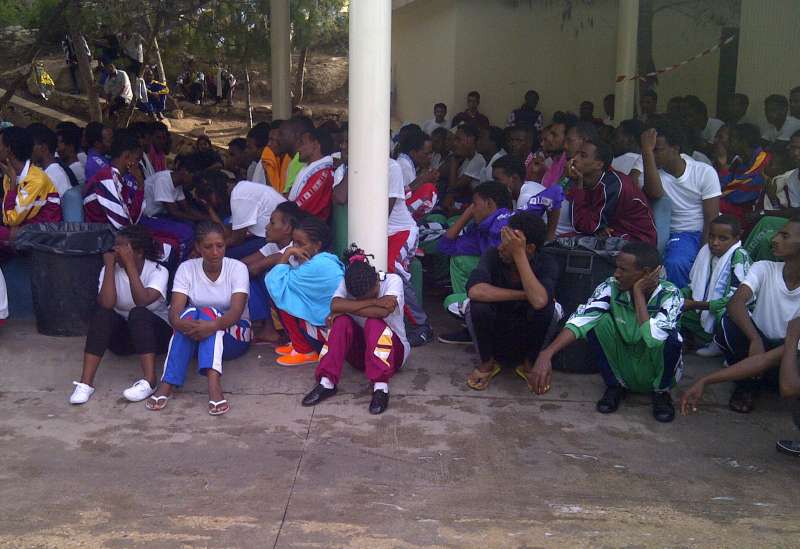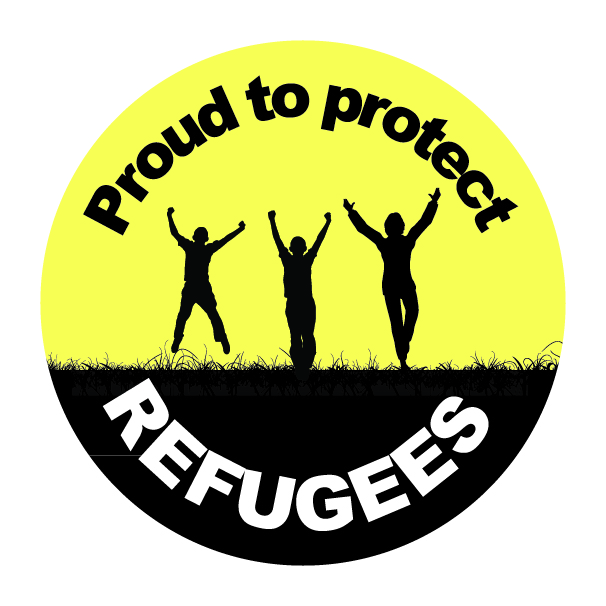-
Concerns over Canada’s handling of Sri Lankans fleeing human rights abuses
The CCR is calling for more consistency in Canada’s response to the serious human rights abuses that continue to occur in Sri Lanka.
On the one hand, CCR welcomes the Prime Minister’s recent strong statement about the human rights situation in Sri Lanka. In particular he noted that the “absence of accountability for the serious violations of human rights and international humanitarian standards during and after the civil war is unacceptable.” On the other hand, CCR is shocked by Canada’s treatment of Sri Lankans who fled to Canada to escape those human rights violations, most particularly those on the MV Sun Sea who arrived on the West Coast in August 2010.
Newly publicized information about the fate of one of the passengers on the Sun Sea raises deeply troubling questions about the relationship of the Canadian government to the Sri Lankan authorities. Sathyapavan “Sathi” Aseervatham, who was recently killed in Sri Lanka, alleged in an affidavit that he was tortured on his return to Sri Lanka, by authorities who knew that he had been on the Sun Sea.
Did the Canadian government share the names of the Sun Sea passengers with the Sri Lankan authorities? He was subsequently called in by the Sri Lankan authorities (the Terrorist Investigations Division) who allegedly interviewed him about the affidavit in the presence of officers of the Canada Border Services Agency. Did the Canadian government share a confidential affidavit alleging torture to the very authorities alleged to have committed the torture?
The CCR calls for an investigation. Regrettably, the Canada Border Services Agency has no external complaints mechanism, meaning that formally there is no one to investigate such allegations other than the CBSA itself.
For the CCR’s full statement: http://ccrweb.ca/en/public-statement/2013-10-11
For related media articles: http://ccrweb.ca/en/taxonomy/term/518
-
Lampedusa’s link to Canada: Responding to migrants crossing the Mediterranean
 In early October some 300 people, maybe more, died at sea, trying to cross the Mediterranean by boat. Most were Eritreans.
In early October some 300 people, maybe more, died at sea, trying to cross the Mediterranean by boat. Most were Eritreans.
For many Canadians this may seem a distant event, and the desperation of the passengers, risking their lives on a rickety boat, may seem unimaginable.
But others in Canada know this reality only too well. They have lived through persecution that forced them to flee their home countries. They have spent time in refugee camps that are barely safer than the countries they fled, and where hopes for a decent future are crushed each day. They have sisters, cousins, friends who might well have taken their chance on that boat, so desperate is their situation today in East Africa.
And what are we doing in Canada to offer a better alternative than a rickety boat? Not very much, and less than before. For an analysis click here.
So what can you do? Raise your voice and ask for the Canadian government to open the door to refugees, including more resettlement of refugees from East Africa.
-
Supreme Court hears case on fundamental fairness for non-citizens
The Canadian Council for Refugees and the International Civil Liberties Monitoring Group (ICLMG) jointly intervened at the Supreme Court in the Harkat case, which addresses the use of undisclosed evidence in the security certificate process. At issue is a rule that it is fundamentally unfair to rely on secret evidence in deciding whether to deport a non-citizen, potentially to a risk of persecution.
Treating people fairly means giving everyone equal protection of their basic rights. The use of secret evidence in immigration processes is unfair because it undermines non-citizens’ right to life, liberty and security of the person. When these rights are at stake for citizens, such as in criminal proceedings, we do not tolerate the use of secret evidence. Non-citizens deserve an equal opportunity to know and respond to the evidence used against them.
The CCR/ICLMG factum is available on the
website of the Supreme Court of Canada.
For the full CCR press release,
click here.
For media coverage of the case,
click here.
-
Join the Proud to Protect Refugees Week of Action, 10 – 17 November 2013

The Proud to Protect Refugees Week of Action starts in a few days. Get involved! Share with others how refugees enrich our lives. Raise your voice on the importance of protecting refugee rights in Canada, now and in the future.
Click here for suggested Week of Action activities and other campaign tools.
Can’t organize an activity, but you want to get involved?
Interested in getting involved in the Week of Action, but the dates don’t work?
Here are some other key dates for you to plan around.
About the Proud to Protect Refugees Campaign
Recent changes in Canada have increased negative talk and make it tougher for refugees and others to find protection and to feel welcome.
For more information about
Proud to Protect Refugees and how to get involved:
http://ccrweb.ca/en/proud-to-protect-refugees-
Register for the CCR Fall Consultation, Kitchener-Waterloo, 28 – 30 November 2013
Join us to explore questions affecting refugee protection and newcomer settlement.
recognizes that we must all work together towards a stronger and healthier future.
Conference discussions will address issues that challenge refugees, immigrants, advocates and community workers.
will open the conference. What does the legacy of residential schools for aboriginal people mean for refugees and immigrants?
Information about the consultation and online registration are available at:
Are you participating in the CCR Fall Consultation? Consider joining us the day before for these issue-specific forums:
Are you interested in migrant justice and improving policy and practice on migrant workers rights?
Join us in Kitchener-Waterloo on Wednesday 27 November for in-depth discussions at the
Do you want to learn more about work being done to address trafficking situations in Canada?
on Wednesday 27 November to discuss emerging needs, trends and more with others working on this issue.
Are you looking to start or enhance outreach and awareness-raising activities on trafficking in persons in your community, your organization of with colleagues in your sector?
Then this new Starter Toolkit on Trafficking Issues is for you! It highlights Canadian and international resources that are used daily by organizations across Canada in their work on trafficking. Its focus is primarily on the trafficking of non-citizens in Canada; however resources can also offer guidance on raising awareness about other trafficking situations.
The toolkit was developed by the Canadian Council for Refugees in collaboration with anti-trafficking groups across Canada, and thanks to funding from the Canadian Women’s Foundation.
to browse the toolkit.
